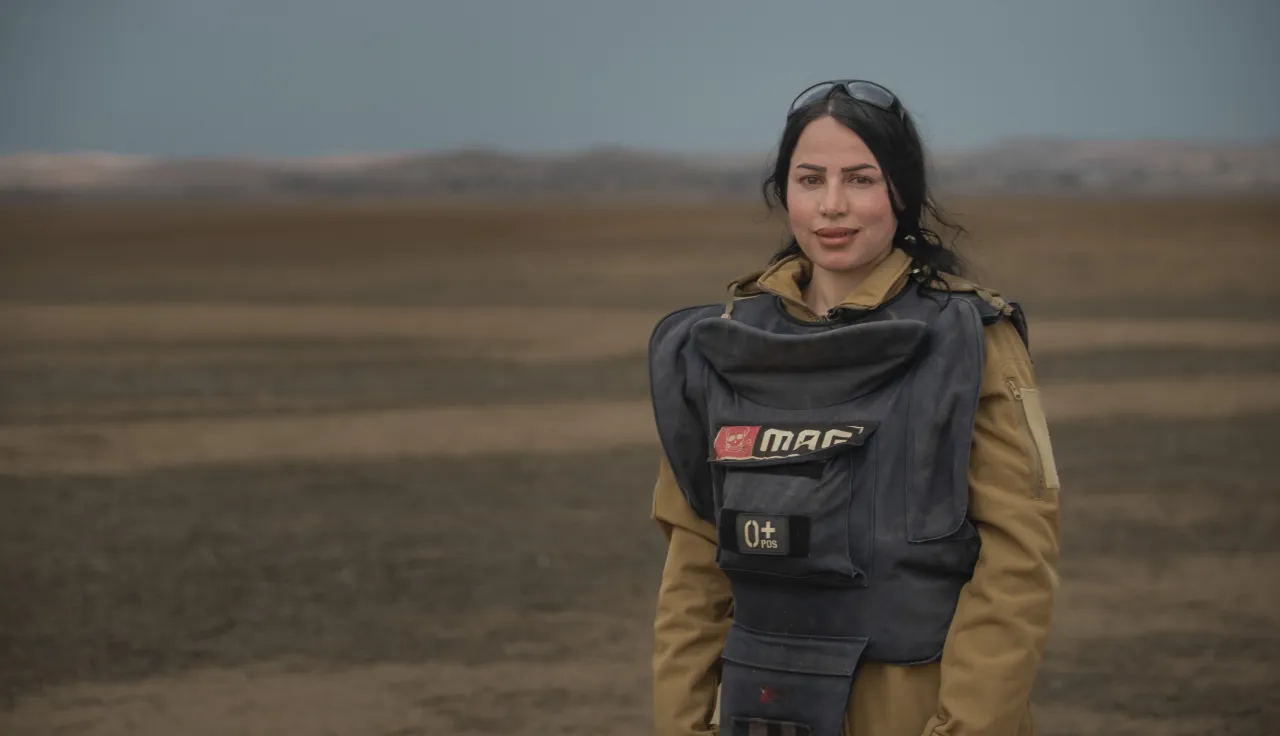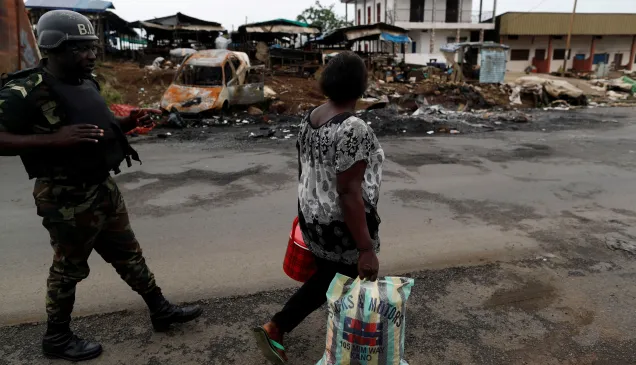In the minefields of Iraq, Noora works to restore life and hope to her homeland

“Every time I leave for work, my daughter cries. It is not easy, but I have no choice."
Noora Murad is a deminer from Sinjar, Iraq, and has dedicated her life the dangerous, difficult and essential work of protecting civilians from the long-term hazards of anti-personnel landmines.
As of the end of 2023, Iraq reported 1,194.43km² of anti-personnel mine contamination, and another 441.28km² of contamination from improvised explosive devices, including improvised mines.
Growing up in an area heavily contaminated by explosive remnants of war, Noora has witnessed firsthand what these statistics mean and the dangers these kinds of devices pose to communities - children indiscriminately hurt or killed while playing, shepherds injured by hidden landmines in their fields and losing their livelihoods, houses damaged or destroyed, reconstruction made impossible, and families unable to move freely or return home safely.
Determined to make a difference, Noora has chosen a career path once dominated by men, stepping into the hazardous yet life-saving work of landmine clearance.

Her work involves locating, identifying, and safely removing landmines and other explosive remnants of war from contaminated areas. Using tools like metal detectors, protective equipment, and sometimes specially trained dogs, Noora and her colleagues at Mines Advisory Group (MAG) carefully clear paths through minefields.
Another important part of this work is improving conditions for communities: marking hazardous areas, educating people on risks - especially children - and helping restore access to vital land, water sources, and infrastructure.

Noora's is indeed meticulous, high-risk work that takes her away from her family, but saves lives and allows war-affected communities to begin rebuilding.
For her, demining is more than a profession; it is a calling and a commitment to restoring life and hope to her homeland.

Supporting demining activities in Iraq
In Iraq, the ICRC actively engages with authorities, security forces, and key stakeholders to promote compliance with international humanitarian law, ensuring that clearance operations and risk reduction measures adhere to legal obligations and humanitarian principles.
At the same time, we work closely with national authorities to strengthen the national legal framework relating to anti-personnel mines and cluster munitions in line with international obligations.
We work on advocacy and support authorities in the Implementation of international legal standards, providing assistance to the Iraqi authorities in implementing legal obligations related to explosive ordnance risk education and victim assistance.
We always encourage authorities to take practical steps to make progress towards fulfilling long-standing commitments to protect civilians from indiscriminate harm caused by mines, cluster munitions, and explosive remnants of war.



